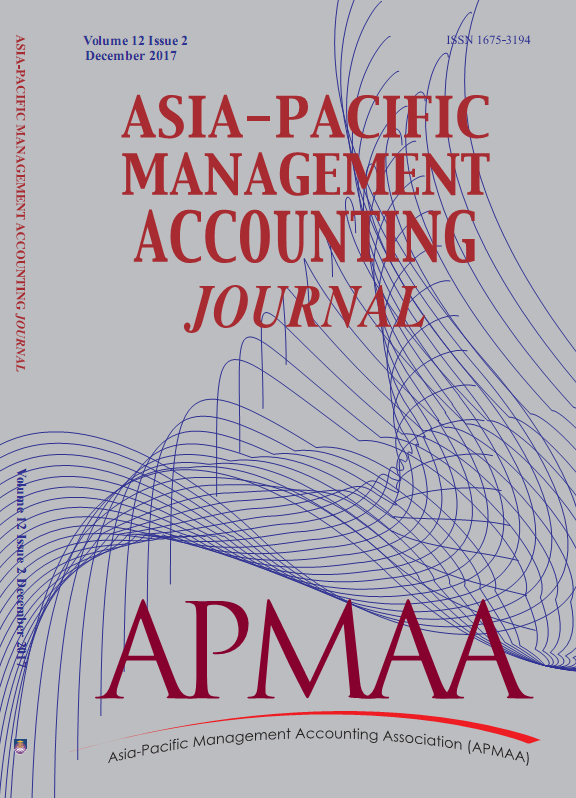Volume 17 Issue 3, December 2022
ARTICLE INFO
Article History:
Received: 3 December 2022
Accepted: 8 December 2022
Published: 31 December 2022
Impact of External Debt and Financial Integrity Management on Economic Growth in Developing Countries: Evidence from the MMQR Approach
Kazi Musa1, Norli Ali2, Jamaliah Said1*, Norhayati Mohamed1 and Inna Junaine3
1Accounting Research Institute (HICoE), Universiti Teknologi MARA (UiTM), Malaysia
2Faculty of Accountancy, Universiti Teknologi MARA (UiTM), Malaysia
3Faculty of Law, Universitas Padjadjaran, Bandung, Indonesia
The study examined the impact of external debt on economic growth in the context of developing countries. Since the level of financial integrity plays a vital role in the growth factor, we also investigated the direct impact of financial integrity (FI) management on economic growth as well as the moderating role of FI on the nexus between external debt and economic growth. To achieve the goals, we deployed a newly developed econometric approach, the Method of Moment Quantile Regression (MMQR), considering the quantile in both scale and location due to highly heterogeneous panel data from 1990 to 2020. The empirical estimation of the MMQR approach demonstrated that external debt is counterproductive in all quantiles for economic growth in the context of developing countries. Besides, FI management was insignificant in the bottom to top quantiles. Besides, the results also depicted that external debt works better for economic growth by the presence of FI in upper quantiles than the lower quantiles. The findings indicated that external debt is detrimental to economic growth in developing countries, while financial integrity management supports the debt-growth relationship. The study provides several policy implications.
Keywords: external debt, economic growth, MMQR, financial integrity, developing countries

